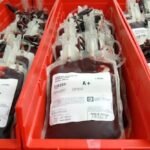What methods can athletes use to improve their performances this year?
In sports, athletes continually seek methods to enhance their performances. Whether you’re an amateur hitting the local gym or a professional on the global stage, the quest for improvement is never-ending. As we venture into 2024, several tried and tested strategies can be adopted to optimize performance without medical interventions.

Here are six effective methods:
Structured and Varied Training
Athletic improvement is a complex process that requires a well-structured training program. To begin with, the training program should include both variety and specificity. This means the program should be designed to align with the athlete’s sport and position to ensure it is as relevant as possible. For instance, a sprinter might focus on explosive start drills and short-distance speed work, whereas a marathon runner would prioritize long, endurance-building runs.
Incorporating variety into the training program is also crucial to prevent plateaus. When athletes perform the same workout repeatedly, their progress may stagnate. To avoid this, coaches should incorporate different workouts into the program. Strength training, agility drills, and even alternative sports can enhance the overall athletic ability while keeping the regimen engaging.
Advanced-Data Analytics
Leveraging technology to analyze athletic performance has become increasingly popular and has the potential to bring about significant improvements in training and performance. Fitness trackers and smartwatches are wearable devices that can help monitor various fitness-related metrics, including the number of steps taken, heart rate while being worn on the body, and sleep quality. These devices have gained popularity in recent years and are widely used by people to monitor their health and fitness goals. They enable athletes to monitor real-time metrics, including heart rate, speed, and distance. This data can be used to adjust training intensity, monitor recovery, and prevent overtraining, which can help athletes optimize their performance and avoid injury.
In addition to wearable technology, video analytics can Enhance athletic performance, particularly in sports requiring precise techniques. By analyzing an athlete’s form and movements, coaches and athletes can identify areas that need improvement and make necessary corrections. This technology can also be used to track progress over time, which can help athletes set and achieve goals more effectively.
Nutritional Strategies
Achieving optimal nutrition is a crucial component of athletic success. Each athlete has unique dietary requirements influenced by their sport, position, and health needs. Ensuring adequate energy intake, maintaining a balance of macronutrients, and staying hydrated are all crucial factors to consider. For example, endurance athletes may benefit from consuming more carbohydrates to maximize glycogen stores, while strength athletes may focus more on protein to support muscle repair and growth. By carefully tailoring their diets to their needs, athletes can give themselves the best chance for success on the field, court, or track.

Psychological Conditioning
A strong and resilient mind is just as important as physical fitness when achieving success in sports. Athletes who prioritize practices like visualization, meditation, and goal-setting can significantly enhance their performance by improving their focus, reducing anxiety, and boosting their confidence. Seeking consistent mental health support and consulting with a sports psychologist can help athletes manage. Athletes often face immense pressure during competitions, and Maintaining a positive and healthy mental state is essential for optimal performance. When athletes have a clear and focused mind, they can tap into their full potential and reach their desired levels of success. Their goals are to prioritize mental strength and psychological resilience.
Recovery and Rest
Recovery is a crucial part of any training program that should be noticed. Providing enough rest and quality sleep is vital for muscle repair, hormonal balance, and overall well-being. It is also helpful to have active recovery days that include light swimming or yoga to aid muscle recovery while keeping the body active. Techniques such as foam rolling, massage, or Contrast water therapy involving alternating between hot and cold showers.) can also enhance recovery and muscle function. For those looking for a natural way to support their recovery process, mushroom gummies can be a great addition to their routine, as they contain adaptogens that can help the body cope with stress and promote overall wellness.
Community and Support Networks
A strong and resilient mind is just as important as physical fitness when achieving success in sports. Athletes who prioritize practices like visualization, meditation, and goal-setting can significantly enhance their performance by improving their focus, reducing anxiety, and boosting their confidence. Seeking consistent mental health support and consulting with a sports psychologist can also help athletes manage the pressures of competition, which can be overwhelming. Still, it’s essential to maintain a positive attitude and healthy mental state. Athletes can reach their maximum potential and accomplish their goals. Their goals are to prioritize mental strength and psychological resilience.
Conclusion
It is crucial to take a well-rounded approach to enhance one’s athletic performance. This involves taking into account all the different aspects of training, including nutrition, rest, and recovery, to achieve optimal results. By integrating structured training, embracing technology, optimizing nutrition, strengthening mental health, prioritizing recovery, and fostering supportive networks, athletes can set themselves up for a successful year. As we look to 2024, these methods provide a robust framework for athletes aiming to reach new heights in their sporting careers.





